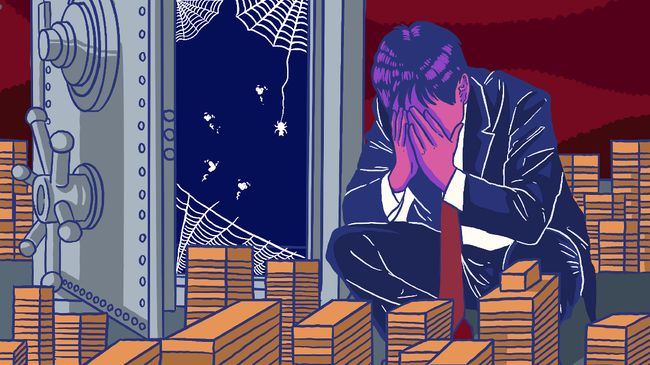Jakarta, CNBC Indonesia – A number of property companies in China are currently struggling to pay off obligations owed to creditors, with Evergrande and Kaisa reportedly needing to raise hundreds of millions of dollars.
In the midst of the ongoing property crisis, Beijing is trying to reassure the market as a whole, but also indirectly hints that the current regime could just let Evergrande languish.
China’s property market has long been filled with mounting debt as the main fuel for corporate operations, with the belief that the pulse of the housing market will not stop. As a result, China Evergrande Group and other troubled housing developers are facing multi-million dollar payment deadlines.
The complicated state of China’s property market today is a test for Beijing’s narrative that it can deal with this threat to the Chinese economy.
Evergrande, which has approximately US$ 300 billion in liabilities, needs more than US$ 82 million to make interest payments on two debt securities issued by Evergrande’s Scenery Journey Ltd to creditors to avoid default (default), where the end of the deadline (grace period) fell on Monday (6/12) yesterday.
The property developer also said over the weekend that it was unable to make another separate payment of $260 million, an indication investors took as a prelude to doom. As a result, its shares plunged nearly 20% on Monday on the Hong Kong Stock Exchange.
Another developer under heavy pressure, Kaisa Group, had to pay bondholders $400 million on Tuesday, after the company said last week it failed to get approval from investors to renegotiate payment terms.
China’s property sector has rattled global markets for months, as property developers struggle to find fresh funds to pay off mounting debt. The plight of property developers has been exacerbated by slowing demand from home buyers, falling property prices in many Chinese cities and Beijing’s crackdown on excessive bank lending.
Chinese property developers have $1.3 billion in obligations in payments on US dollar bonds maturing this month. In April, that figure will jump to $17 billion, according to estimates from Goldman Sachs.
If Evergrande and Kaisa miss their payments, China’s leaders will be in a difficult position, given that the two giants risk destabilizing property markets and the financial system if they suddenly collapse. But if the government chooses to step in to help, it could send the wrong message that they are coming to the rescue of a debt-ridden property company.
– .


